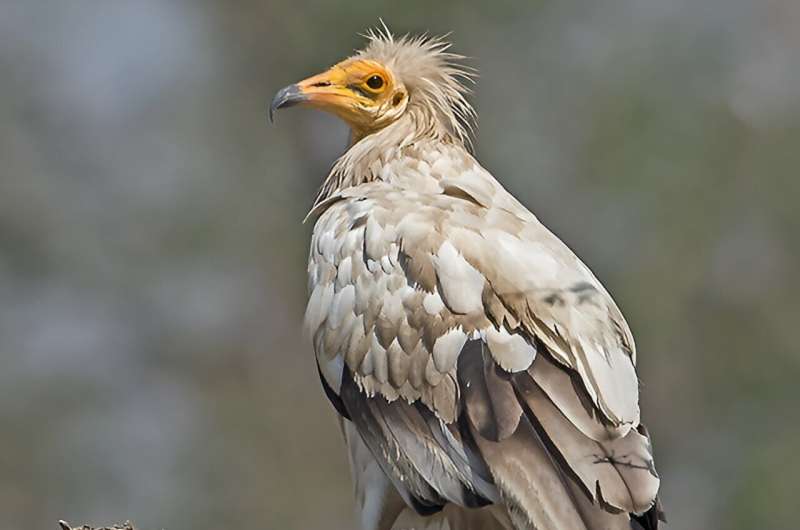Captive-bred Egyptian Vultures Demonstrate Improved Flight and Migration Abilities, Study Finds

January 8, 2024
This article meets Science X's editorial standards, with the following aspects being emphasized to ensure the article's credibility:
- Fact-checked
- Peer-reviewed publication
- Trusted source
- Proofread
With the assistance of Ben-Gurion University of the Negev
The researchers at Ben-Gurion University of the Negev investigated the development of the flying skills of Egyptian vultures during their migration period. The behavioral skills of animals depend on their early developmental environment and the experience they gain. The researchers tracked the birds' performance using GPS for detailed study.
Their work can be found in the Current Biology journal.
They analysed the flying abilities of two distinct groups of Egyptian vultures, or Neophron percnopterus, a type of long-distance soaring raptor. The analysis involved 127 autumn migrations of 65 birds, using GPS transmitters. One group had been captive-bred while the other was wild.
It was observed that flight and migration performance improvement was noticeable in both sets of birds as they gathered experience. The advances were, however, significantly apparent amongst the captive-bred group.
The birds bred in confinement were initially less efficient during their first migration. However, by their second migration, they matched the performance of birds raised in the wild, demonstrating how their acquired experience compensated for their early-life shortcomings.
Like humans struggle more with language learning as they age, late-released captive-bred vultures faced difficulty picking up crucial flying and navigating skills but eventually caught up to their wild counterparts who had a learning head start.
Dr. Ron Efrat, who was among the researchers leading the investigation, talked about how the data generated on the vultures' migration and flight skills contributed to understanding the significance of early experience and acquired experience in dealing with challenging phases like migration. He is a recent graduate of doctoral studies at the Jacob Blaustein Institutes for Desert Research at Ben-Gurion University of the Negev under Professor Oded Berger-Tal.
Dr. Efrat deduced that both humans and birds are influenced by their life experiences.
Journal details: Current Biology
Credit: Ben-Gurion University of the Negev




